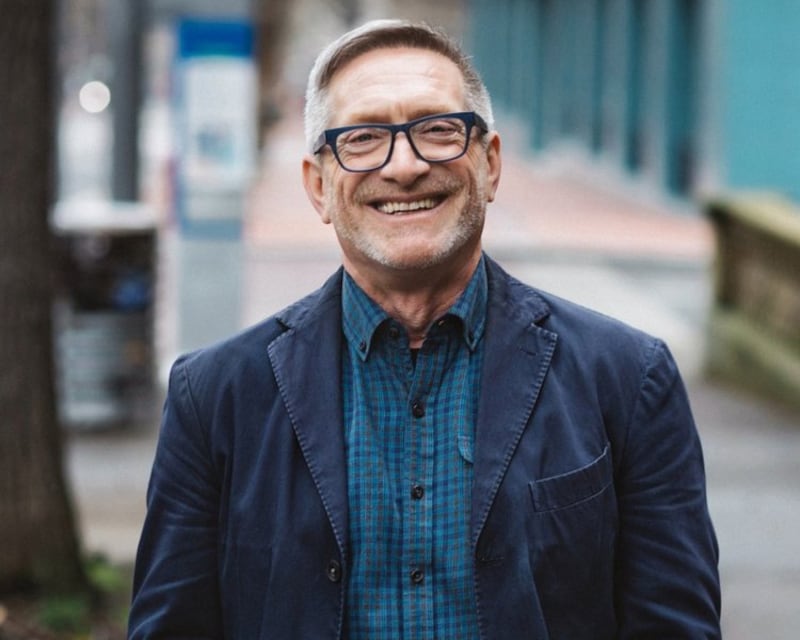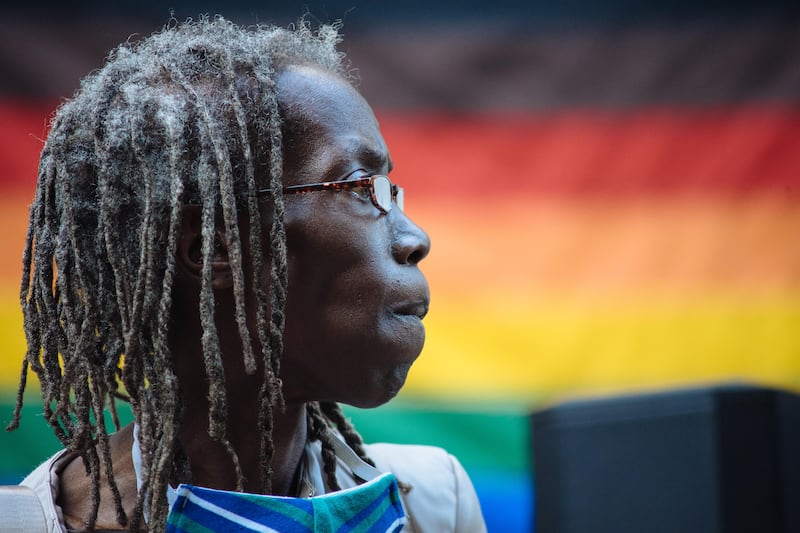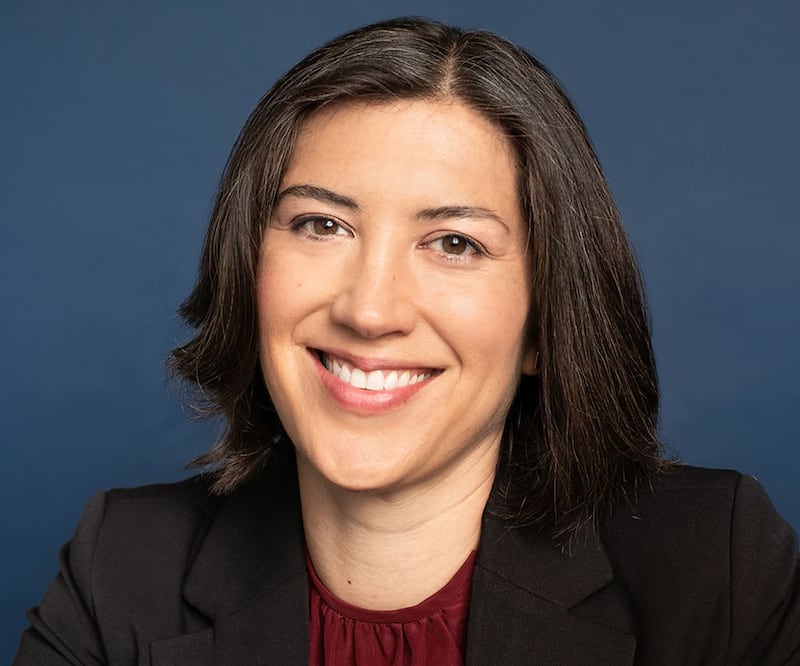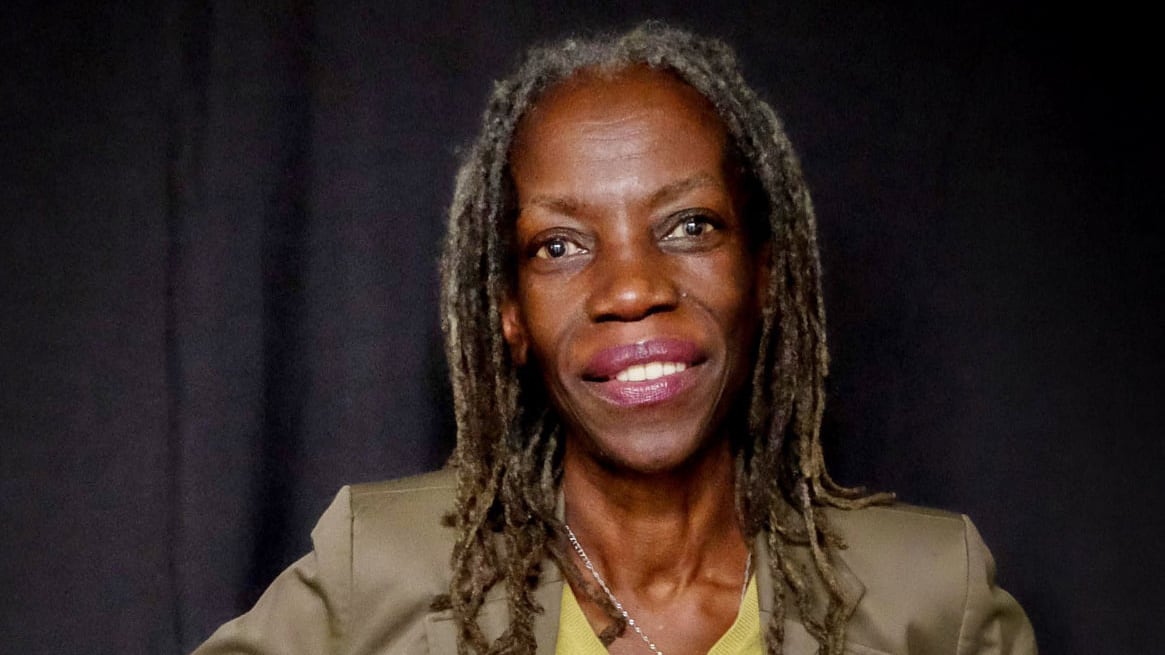Portland City Council Position 2
Dan Ryan

Commissioner Dan Ryan took office less than two years ago, winning an August 2020 special election to serve out the remainder of late Commissioner Nick Fish’s term.
Ryan, 59, brought a strong nonprofit and civic background to City Hall. The former CEO of education nonprofit All Hands Raised and a Portland Public Schools board member, Ryan also worked as a fundraiser at Portland State University and Oregon Ballet Theatre. His résumé suggested he could hit the ground running.
Ryan joined the council as a critic of the Portland Police Bureau but soon changed his tune. He called the police budget “bloated” and “secretive” in his 2020 campaign, yet now has reversed course and voted against police budget cuts and initially voted against expanding Portland Street Response last spring.
Ryan says now that he’s privy to the inner workings of the bureau, he no longer thinks it’s bloated or secretive. Hmm.
As housing commissioner, Ryan consistently talks about homelessness in Portland as a humanitarian crisis. But his actions display little urgency.
He pledged to site six safe rest villages outfitted with tiny homes, basic sanitation and behavioral health services by the end of 2021. None has yet opened. And Ryan left empty handed from a yearlong negotiation with Metro to secure a section of the Expo Center parking lot for sanctioned RV and car camping.
To his credit, Ryan helped negotiate a joint package between the city and county during the fall that puts dollars toward more shelter beds and behavioral health outreach workers. As the commissioner in charge of the Bureau of Development Services, he’s also trying to streamline permitting, a worthy if elusive goal.
Despite Ryan’s slow start, he still inspires far more confidence than his challengers, led by AJ McCreary, executive director of the nonprofit Equitable Giving Circle. That operation, which primarily works with small BIPOC farmers to feed minority families, doesn’t have much of a track record and has yet to secure consistent funding streams.
McCreary, 36, supports cutting the police’s behavioral health unit and crisis response team and diverting those dollars to Portland Street Response. She opposes sweeping homeless camps, but she did not convince us her plan to house people in unused apartments and hotel rooms—an idea borrowed from a group of local housing advocates—has a clear path forward with her at the helm.
Sandeep Bali, 39, is a pharmacist who’s funded his own campaign. He pressed a no-tolerance camping ban, but seemed mostly fueled by his personal annoyance at tents. Steven Cox, 42, an unemployed human resources worker, says he’d end homelessness within three years using 150-bed shelters.
We wish Ryan had drawn stronger competition. For the city’s sake, we hope he’ll find the courage of his convictions in a full term and move decisively toward tackling homelessness and the red tape that makes developing new housing in Portland needlessly slow and difficult.
Moment of joy when Ryan felt life was returning to normal: When he went to a University of Oregon football game tailgate last October.
Portland City Council Position 3
Jo Ann Hardesty

In 2018, WW endorsed Jo Ann Hardesty’s bid to become the first Black woman on the Portland City Council. Four years later, Hardesty’s road to reelection appears bumpy.
And our own decision to endorse Hardesty, 64, this time was difficult.
Our reservations concern both her personal conduct and her performance. Her unpaid credit card debt and failure to appear in court for that debt betrayed a cavalier attitude toward financial obligations rare in a senior, well-paid public official—and the matter raises questions about whether she should oversee city bureaus with budgets in the hundreds of millions of dollars. Her public remarks about policing issues have been divisive and inflammatory—most notoriously when she claimed in an interview with a national magazine that Portland Police Bureau officers were starting fires at protests.
That remark—for which she later apologized—is indicative of Hardesty’s tendency to view politics in terms of clear-cut heroes and villains. It’s why her relationship with other elected officials can become strained. It also may explain why she didn’t take a more active role in responding to the record gun violence that has plagued the city.
Nonetheless, Hardesty has delivered much of what she promised four years ago. No commissioner in living memory has done more to hold police accountable—or to provide alternatives to armed officers responding to people in mental distress.
She championed and implemented the creation of Portland Street Response, which sends a medic and a social worker, rather than cops, to calls for service to citizens in crisis. In the past, such calls have escalated to violence often enough for the Police Bureau to be placed under the supervision of the U.S. Department of Justice. Hardesty has consistently questioned the assumptions underlying the demand for more police resources. The budget choices she pushed for deemphasized policing that disproportionately targeted Black people.
Hardesty’s management of the city’s fire and transportation bureaus has been praiseworthy. As traffic deaths have soared, she’s provided real leadership and practical solutions: lowering speed limits on all arterial streets, and wresting control of 82nd Avenue from the Oregon Department of Transportation, along with $80 million in federal funding to make it a neighborhood street rather than an urban highway.
At the risk of oversimplifying a complicated political moment, we think Hardesty is so embattled partly because she has focused on police at a time when many Portlanders are alarmed by crime. Her challenge to police power is no longer in fashion.
But we also recognize the risk any public official takes on when they openly criticize and challenge police in this town—be it the bureau or the union.
Last March, Hardesty was the victim of an attempt by the then-head of the police union to destroy her reputation by leaking what turned out to be a false report of her involvement in a hit-and-run. That incident isn’t a reason to endorse Hardesty, but it illustrates the threat some police officers feel from her scrutiny.
And they have reason do so. She convinced 82% of Portlanders to vote for the creation of a new police oversight board, and despite the efforts of the police union’s lobbyists, she shepherded the passage of Senate Bill 621 last summer, which effectively paved the way for the implementation of the oversight board. She’s also surmounted obstacles while implementing Portland Street Response, such as the 3-2 vote against expanding the program citywide last May, as well as efforts by the police union to restrict PSR’s ability to respond to indoor, private settings and suicide calls.
Hardesty faces two substantive opponents running to her right.
Rene Gonzalez, who owns a legal and consulting firm and formerly worked as a lawyer for Stoel Rives and KinderCare, supports criminalizing homelessness if people sleeping on the streets refuse services and shelter when there’s enough shelter available. He pledges to undo several of Hardesty’s police reforms, including placing police officers back in schools and bringing back a gang unit.
Administrative law judge Vadim Mozyrsky offers a more compelling alternative. Since moving to Portland from Texas in 2014, the Ukraine-born Mozyrsky has served on half a dozen volunteer commissions and boards, including two police accountability panels. He’s a measured, serious person who we believe could be a steady manager of city bureaus.
And he will likely benefit from an independent expenditure of as much as $700,000 to boost his chances.
Mozyrsky says neighborhood associations are the group least listened to by City Hall. That’s puzzling: The city’s neighborhood associations have proved the greatest obstacle to opening homeless shelters, building infill housing and making housing more affordable through greater density.
We were also disappointed with his unwillingness to take a firm stance on policing issues. Mozyrsky says he is an advocate for police accountability and reform, yet his voting record on Portland public safety boards does not back that up. Neither does his view that “bad apples” are at fault rather than systemic issues that plague police departments nationwide.
We are just as frustrated as our readers by the dual crises of homelessness and gun violence in our city.
But we think Hardesty’s dissenting voice for low-income Portlanders and people of color is still of value, particularly if she can become more effective by listening to criticism of her tactics and rhetoric.
For those reasons, we endorse Hardesty.
Moment of joy when Hardesty felt life was returning to normal: “I got to go see President Biden today. And most people were not masked.”
Portland City Auditor
Simone Rede

The city auditor essentially functions as a sixth independent commissioner tasked with watchdogging how the city functions and how it spends taxpayer dollars. And after two terms of working alongside of—and sometimes scuffling with—the Portland City Council, Auditor Mary Hull Caballero is vacating her seat.
The position has attracted two candidates: Brian Setzler, a Portland CPA who runs his own business, and Simone Rede, a principal management auditor at Metro.
In her current role at the regional agency, Rede, 39, has conducted performance audits of the affordable housing bond program and the Oregon Zoo. From 2013 to 2015, she worked as a performance auditor for the state, where she audited child care in Oregon and TriMet.
Setzler, 60, has spent the past three decades building a career in the private sector, with extensive experience conducting financial audits. He told WW he was prodded to run by people in his circle. But when pressed on who, exactly, those people were, Setzler declined to disclose—a move we found oddly opaque for a city auditor hopeful. (It’s also unnecessary, since Setzler made it clear his run was motivated by Hull Caballero not penalizing the campaign finance violations of Mayor Ted Wheeler.) His backers include Our Revolution Oregon, the Pacific Green Party of Oregon, the Oregon Progressive Party, and the Independent Party of Oregon.
Rede has received endorsements from Oregon establishments that span the political spectrum, from the Next Up Action Fund to the Portland Business Alliance. On top of that, a spate of current and former elected auditors have put their names behind Rede, including Metro Auditor Brian Evans, Multnomah County Auditor Jennifer McGuirk, and Gary Blackmer and LaVonne Griffin-Valade, who both served as auditors for the city and the county.
We agree with them. Of the two candidates, Rede is the only one with extensive performance auditing experience. While Setzler’s status as a CPA is noteworthy, the job of city auditor in Portland is primarily a performance auditing function rather than a financial one. By that metric, Rede is the clear choice.
Moment of joy when Rede felt life was returning to normal: Attending a concert at Topaz Farms on Sauvie Island during a full moon last summer.

